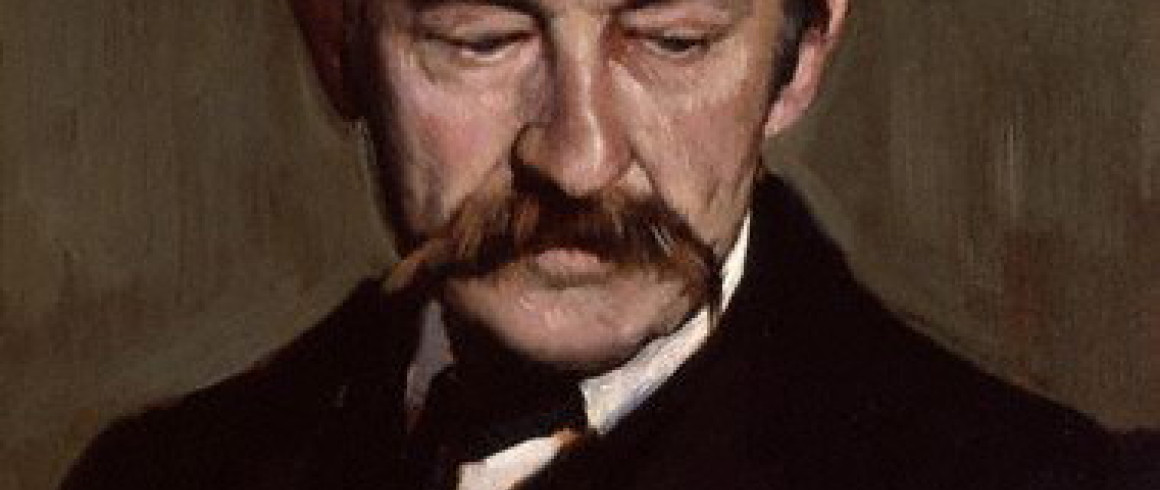Thomas Hardy, celebrating the great things, and fellowship across continents
[caption id="attachment_28732" align="alignright" width="132"] by William Strang,painting,1893[/caption]
by William Strang,painting,1893[/caption]
On this day in 1840 Thomas Hardy, writer and poet, was born. As most will know, he produced novels and many works of poetry in his life. To mark his birthday, here are two poems – one light-hearted, one less so – that still hold contemporary relevance.
Great Things
Easter term is not the easiest. The pressure of exams and coursework is undeniable, and Colleges throughout the University emphasise welfare provision and student support in recognition of this. But the light at the end of the tunnel is May Week, and for some, graduation. These provide a relaxed time at the end of the year to remember everything that is enjoyable about Cambridge, and time for ‘great things’ like, as Hardy says, cider, love, and dancing!
Sweet cyder is a great thing,
A great thing to me,
Spinning down to Weymouth town
By ridgeway thirstily
And maid and mistress summoning
Who tend the hostelry:
Oh cyder is a great thing,
A great thing to me!
-
The dance it is a great thing,
A great thing to me,
With candles lit and partners fit
For night-long revelry;
And going home when da-dawning
Peeps pale upon the lea
O dancing is a great thing,
A great thing to me!
-
Love is, yea, a great thing,
A great thing to me,
When, having drawn across the lawn
In darkness silently,
A figure flits like one-a-wing
Out from the nearest tree:
O love is, yes, a great thing,
A great thing to me!
-
Will these be always great things,
Great things to me?...
Let it befall that One will call,
‘Soul, I have need of thee:’
What then? Joy-jaunts, impassioned flings
Love, and its ecstasy,
Will always have been great things,
Great things to me!
His Country
Like poets of this era, Hardy was inevitably influenced by the outbreak of World War 1. Siegfried Sassoon, one of the best-known war poets, was greatly influenced by Hardy and spent a lot of time with him after the war. He also served in the same platoon as Aubrey Attwater, who donated a book of Hardy’s poems to the College alongside many other texts upon his death. In His Country, Hardy writes from the viewpoint of someone travelling outside of their own country, who discovers that it is much harder than he thought to distinguish the people he meets from his own countrymen; finding himself in their labours, minds, and yearnings, their “heart strings fellow-made”.
[He travels southward, and looks around;]
I journeyed from my native spot
Across the south sea shine,
A found that people in hall and cot
Laboured and suffered each his lot
Even as I did mine.
-
[and cannot discern the boundary]
Thus noting them in meads and marts
It did not seem to me
That my dear country with its hearts,
Minds, yearnings, worse and better parts,
Had ended with the sea.
-
[of his native country;]
I further and further went anon,
As such I still surveyed,
And further yet – yea, on and on,
And all the men I looked upon
Had heart strings fellow-made.
-
[or where his duties to his fellow-creatures end;]
I traced the whole terrestrial round,
Homing the other side;
Then said I, “what is there to bound
My denizenship? It seems I have found
Its scope to be world-wide.”
